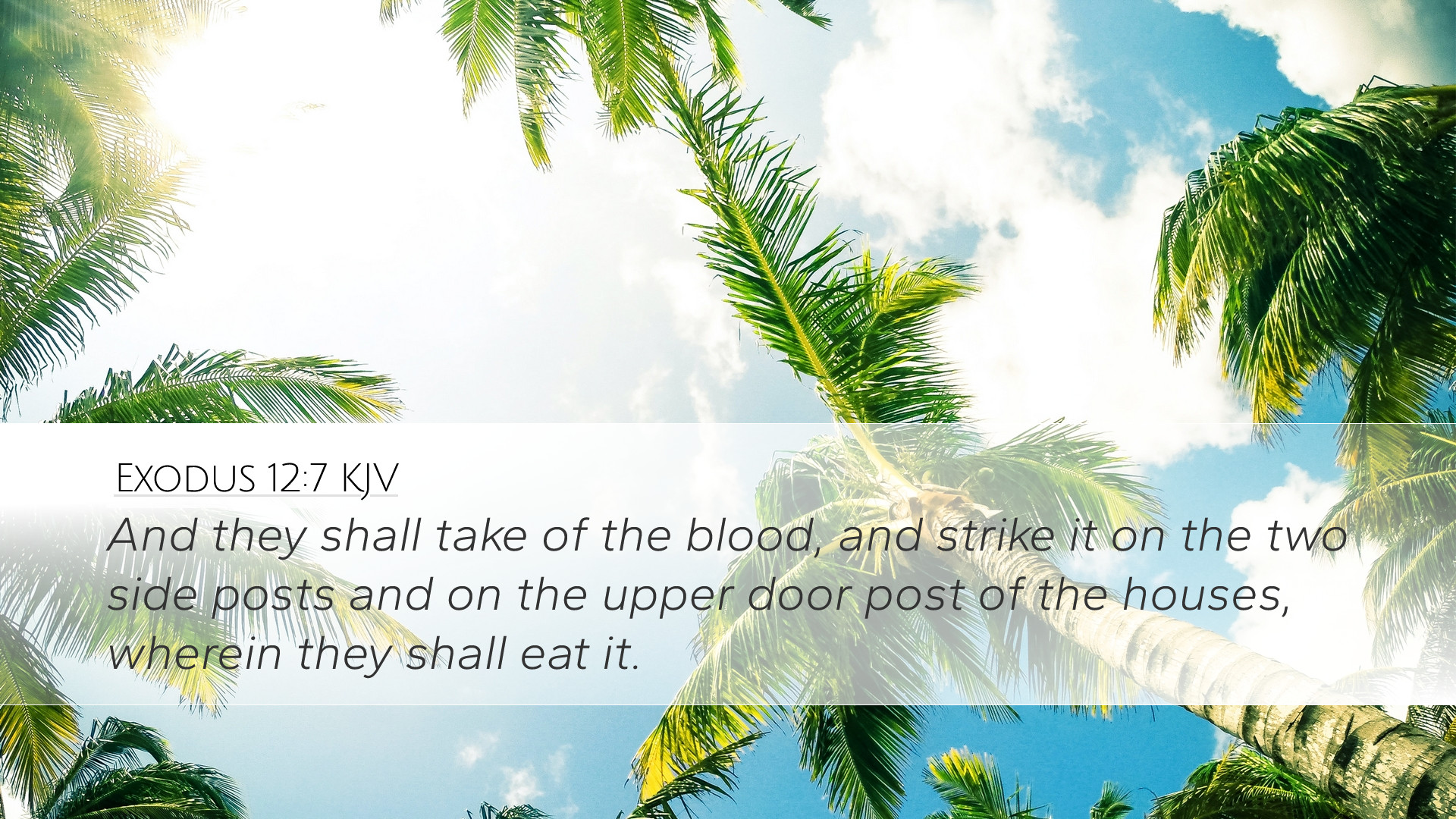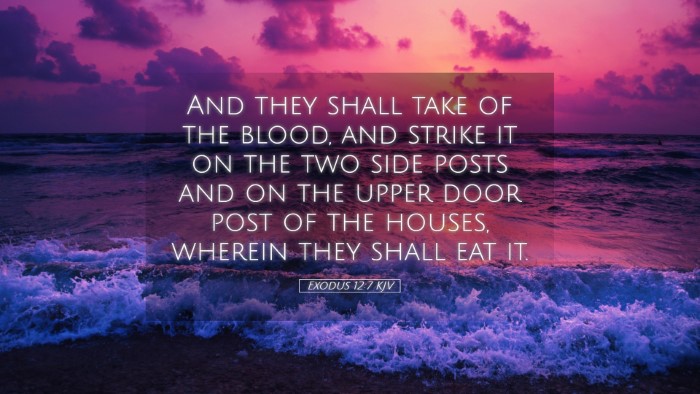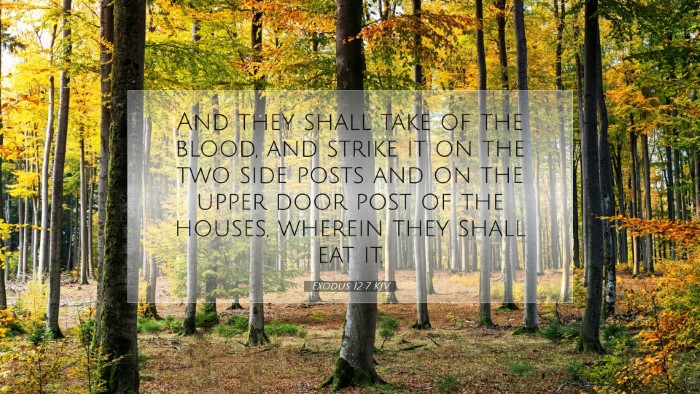Commentary on Exodus 12:7
Verse Reference: Exodus 12:7
"And they shall take of the blood, and strike it on the two side posts and on the upper door post of the houses, wherein they shall eat it."
Introduction
This verse is a crucial part of the Passover narrative, wherein God institutes a profound symbol of deliverance for the Israelites. The instruction to apply the blood of the Passover lamb signifies protection and obedience. In this commentary, insights from respected public domain biblical commentaries aim to illuminate the theological implications and historical context of this pivotal command.
The Significance of the Blood
The blood of the lamb is of paramount importance, symbolizing atonement and deliverance. Adam Clarke notes that the blood serves not only as a physical sign but as a profound spiritual marker. The act of marking door frames with blood is an expression of faith and obedience—showing the Israelites’ trust in God's promise of protection.
Matthew Henry elaborates on the theological implications, indicating that the blood of the lamb prefigures the redemptive work of Christ. Just as the Israelites were saved from the angel of death by the blood, so too, believers today are saved through the blood of Jesus Christ. This fulfills the fundamental principle of sacrifice in the Old Covenant, which points to the ultimate sacrifice made by Christ.
Obedience to Divine Instructions
The instruction to strike the blood on the doorposts emphasizes the necessity of obedience. Albert Barnes highlights that the Israelites were commanded to act upon God's word as an acknowledgment of their faith and compliance with His ordinances. In a broader theological sense, this signifies obedience as an essential component of faith—it is not enough to believe; one must also act according to God’s directives.
Faith and Action
This act of marking the doors shows the intersection of faith and action. The Israelites had to trust God's promise while actively demonstrating their faith through their actions. This principle is echoed in the New Testament, where faith without works is dead (James 2:26). Hence, the application of the blood is a tangible act of faith that God honors.
The Cultural Context
The directive to use the lamb’s blood can also be understood within the cultural practices of ancient Israel. Sacrifices were a customary part of religious life, and lambs held significant ritualistic importance. Clarke emphasizes that this particular command instilled a deep sense of community among the Israelites as they prepared for their exodus together under a unified act of obedience.
Community and Unity
By engaging in this act simultaneously, the Israelites were bound together in their anticipation of deliverance. Matthew Henry notes this communal aspect as vital; such shared faith and obedience reinforce the bonds within God’s covenant people, illustrating the importance of unity in worship and obedience to God’s commandments.
The Covenant Aspect
Exodus 12:7 also reveals the covenant relationship between God and His people. The application of the blood represents God’s protection over those who trust in Him. Albert Barnes comments on the reiteration of covenant themes throughout the Exodus narrative, emphasizing that this act of applying blood is an integral part of God’s redemptive plan for Israel, positioning them as His chosen people destined for freedom.
The Lamb as a Type of Christ
The concept of the Passover lamb serves as a typology of Christ in Christian theology. Clarke illustrates this connection, stating that just as the lamb was without blemish, so was Christ perfect and sinless. The blood of the lamb indicates salvation and a foreshadowing of Christ’s redemptive sacrifice on the cross.
Reflection for Today’s Believer
As modern believers reflect on Exodus 12:7, the call to recognize the blood of the Lamb speaks volumes. The significance of Christ’s sacrifice is mirrored in the act of marking door frames, a physical symbol of divine protection and grace. It implores today’s Christians to internalize and act upon their faith, just as the Israelites did.
Conclusion
In conclusion, Exodus 12:7 stands as a profound declaration of faith, obedience, and God’s covenant faithfulness. The combined insights from Matthew Henry, Albert Barnes, and Adam Clarke illuminate the richness of this passage, reminding scholars, pastors, and students of Scripture of the deep theological significance embedded within the narrative of the Passover. This verse invites believers to recognize the truth that through the application of faith—through Jesus, the ultimate Passover lamb—there is deliverance, protection, and hope for today and eternally.


